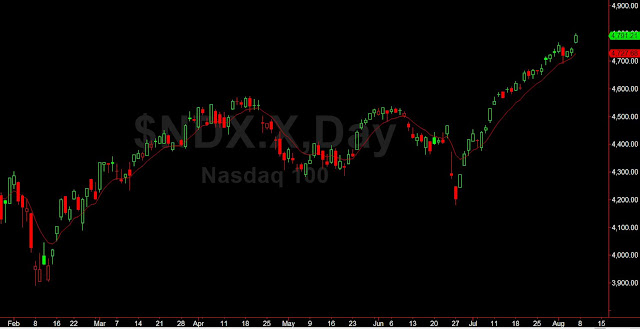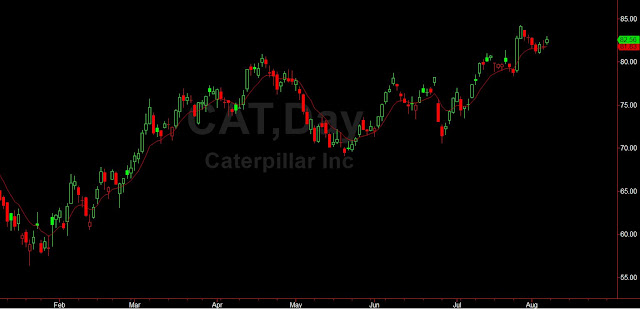For many years, and what I was taught in my investment classes for my MBA, the "Random Walk" theory was de regueur (in vogue). "The random walk theory suggests that stock price changes have the same distribution and are independent of each other, so the past movement or trend of a stock price or market cannot be used to predict its future movement. In short, this is the idea that stocks take a random and unpredictable path."(Investopedia). Meaning the price of a stock (or any market) cannot be predicted by its preceding price. Remember the story of the monkey throwing darts beating the pros?
(c) Index Fund Advisors
Indeed, we behave closer to the proverbial lemmings that you might think! Let's take a look at why. It is a given that we are made up of the basic building blocks that all animals contain, including cells, tissues, and organs. If you look at DNA under a microscope, you cannot tell the difference between ours and any other mammal. We are of course blessed with a much more developed neocortex, the the part of the brain for the seat of reason (conscious thinking). But we also have parts of the brain that are the same as other animals such as the primitive brain stem, important for survival, and the limbic system that controls emotions. These lower level parts of the brain explain why we have a mind that includes unconscious impulsive thoughts. The brain stem (basal ganglia) controls our instinctive behavior. This includes "fight or flight", desire for pleasure, territorialism, breeding, and the selection of leaders (go figure!). The limbic system, controlling emotions and feelings, guides us towards self preservation. Sometimes regretfully, we have no control over the two lower brain parts. They are not connected to the "upper brain". If we sense danger, the less developed parts of the brain kick in and we run like hell (so to speak). It doesn't matter if it really is a threat, as long as we perceive it to be a danger, we react first and think about it later. It is that powerful!
So how does this relate to the stock market? Well, do to the lower brain areas, we want to align our knowledge and feelings with those of the "group" (of peers) and be accepted, whether it be a church congregation or investors in the stock market. Rational thinking goes out the window! We want to know the latest and the best so we hire a stock analyst, who consults with the Wall Street group who consult with each other on "what's hot and what's not". So "the herd" must know more
than we do so we'll follow the herd.
Let's see if I can demonstrate this.
Here's a group of charts. Look carefully and compare them:
Dow Jones Industrial Average:
S&P 500 Index
Nasdaq 100 Index
Each index represents the average of a number of stocks. The Dow - 30 stocks. The S&P 500 Average obviously is 500 stocks, and the Nasdaq 100 is the average of 100 stocks. The period of these charts is from February 2016 until now. Don't tell me they don't look VERY similar!
So how do these averages, made up of different stocks look so much the same? If it was a "Random Walk", the averages would be all over the place, haphazardly! But they're not! I can even pull out a single stock from one of the averages:
Caterpillar (from the Dow) - CAT:
If this doesn't mirror the indexes, I'll eat my hat! Now not all the stocks look like the indexes. But I hope you get my point. There must be a reason for almost identical chart patterns.
So if "the herd" is buying and selling stocks on a daily basis, WHY are they buying and selling them? Well, you could say, some are buying Caterpillar because their stock broker told them it was a "buy" recommendation. Or some sold their CAT stock to buy a new car. There obviously are numerous reasons to buy and sell. But if we are talking about an average of 5,000,000 (five million!) shares of just CAT being bought and sold a day, we need to look at the aggregate reasons for buying and selling, and that is "doing what everyone else is doing" called herd mentality! And because herd mentality is being done subconsciously, buyers and sellers don't realize they are doing it! This is occurring in all actively traded markets including the precious metals (gold and silver), the grains (wheat and corn), bonds, and world currencies!
Although this is VERY interesting, why am I sharing this with you? The good news is that once a subconscious behavior is recognized AND ACCEPTED AS SUCH, the conscious brain can take over and can overcome the desire to herd and MAKE CONSCIOUS DECISIONS based on information available to all. So whether you are a lemming or a sheep, having this knowledge can save you money in the long run!
So what is the "right information"? Let me give you an example. One major reason investors sell their stocks is due to panic or fear. This "feeling" makes them do it. You've heard of the idiom "Buy low and sell high"? Making investing decisions based on emotions makes the opposite happen. In a bull market, greed, another emotion tells you to hang on and make more money at the top. So they don't sell but buy more! And at the bottom, fear sets in and they sell. So they buy at the top and sell at the bottom. Sound familiar? But suppose an investor is aware that these feelings are a reaction to what everyone else is doing (buying or selling their stocks) and says, I'm going to do the opposite! That is VERY difficult as you can imagine! But who do you think is buying the stocks the average investor is selling at the bottom and selling the stocks the investor is selling at the bottom? We call these people the pros or "smart money".
So now that you are consciously aware of how money is made or lost in the stock market (or any other market), you have the option of participating by buying stocks AT THE BOTTOM and SELLING AT THE TOP, which goes against the crowd, a most difficult thing to do, or you can elect to NOT PARTICIPATE and keep your money safe especially during this bear market that will not end until the smart money starts buying again.
I believe this is the first of really important posts I will be writing that are not only fascinating, continuing to explain how markets work and what makes society "tick" but useful information to help keep your money in your pocket and keep you safe.
Until next time.
Best regards,
Ken Knight









No comments:
Post a Comment